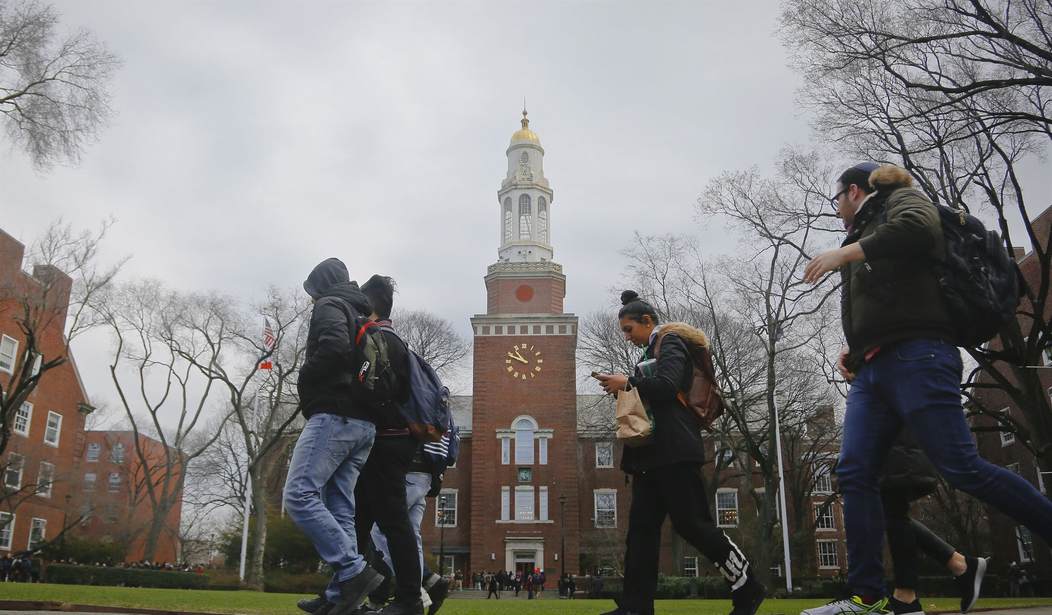Recent statistics on college attendance show that a college education is still desirable and is seen as a way to get ahead in America.
But fewer and fewer young people are going to college. And the trend shows that far more men than women are giving up on higher education.
At the close of the 2020-21 academic year, women made up 59.5% of college students, an all-time high, and men 40.5%, according to enrollment data from the National Student Clearinghouse, a nonprofit research group. U.S. colleges and universities had 1.5 million fewer students compared with five years ago, and men accounted for 71% of the decline.
Until a couple of decades ago, an undergraduate degree was a one-size-fits-all key that could open almost any door to a successful future. Several generations of liberal arts majors ended up being employed in entry-level office positions at small and medium-sized companies.
But today, many companies won’t even look at a resume unless the applicant has an advanced degree, preferably in IT, business, or marketing. What used to be seen as a four-year exercise has become a six- or seven-year commitment to excel.
That, and the prohibitive cost, may be one reason why young people would rather bypass college and go directly to work after achieving a high school diploma.
Not surprisingly, given the focus of most schools, there are few programs to try and boost male enrollment.
American colleges, which are embroiled in debates over racial and gender equality, and working on ways to reduce sexual assault and harassment of women on campus, have yet to reach a consensus on what might slow the retreat of men from higher education. Some schools are quietly trying programs to enroll more men, but there is scant campus support for spending resources to boost male attendance and retention.
The gender enrollment disparity among nonprofit colleges is widest at private four-year schools, where the proportion of women during the 2020-21 school year grew to an average of 61%, a record high, Clearinghouse data show. Some of the schools extend offers to a higher percentage of male applicants, trying to get a closer balance of men and women.
“Diversity” is only important if the discrepancy in numbers can be blamed on the white male hierarchy.
Some schools are using “affirmative action for men” to boost male enrollment. It’s called higher education’s “dirty little secret” and has met with limited success. Researchers cite several other “distractions” for males that make college a less attractive alternative.
Social science researchers cite distractions and obstacles to education that weigh more on boys and young men, including videogames, pornography, increased fatherlessness and cases of overdiagnosis of boyhood restlessness and related medications.
Men in interviews around the U.S. said they quit school or didn’t enroll because they didn’t see enough value in a college degree for all the effort and expense required to earn one. Many said they wanted to make money after high school.
It’s the revenge of “toxic masculinity” and women and their male allies who believed in suppressing boys in early grammar school are reaping what they sowed.
Perhaps it’s the young men themselves who have changed the most. Daniel Briles, an 18-year-old, graduated in June from Hastings High School in Hastings, Minnesota. He decided against college despite earning a 3.5 grade-point average and winning a $2,500 college scholarship.
He took a landscaping job immediately after high school and is making $500 a week. He also creates and sells music on streaming services and invests in cryptocurrencies.
“If I was going to be a doctor or a lawyer, then obviously those people need a formal education. But there are definitely ways to get around it now,” Mr. Briles said. “There are opportunities that weren’t taught in school that could be a lot more promising than getting a degree.”
The hidebound radicals running the higher education establishment — aging hippies and idealists — have no conception of what’s about to hit them. Where college used to be a necessity to get ahead — a fact that allowed universities to gouge parents for a hundred thousand dollars for the privilege of allowing their kids to attend a quality school — it can, for many men, now be avoided.










